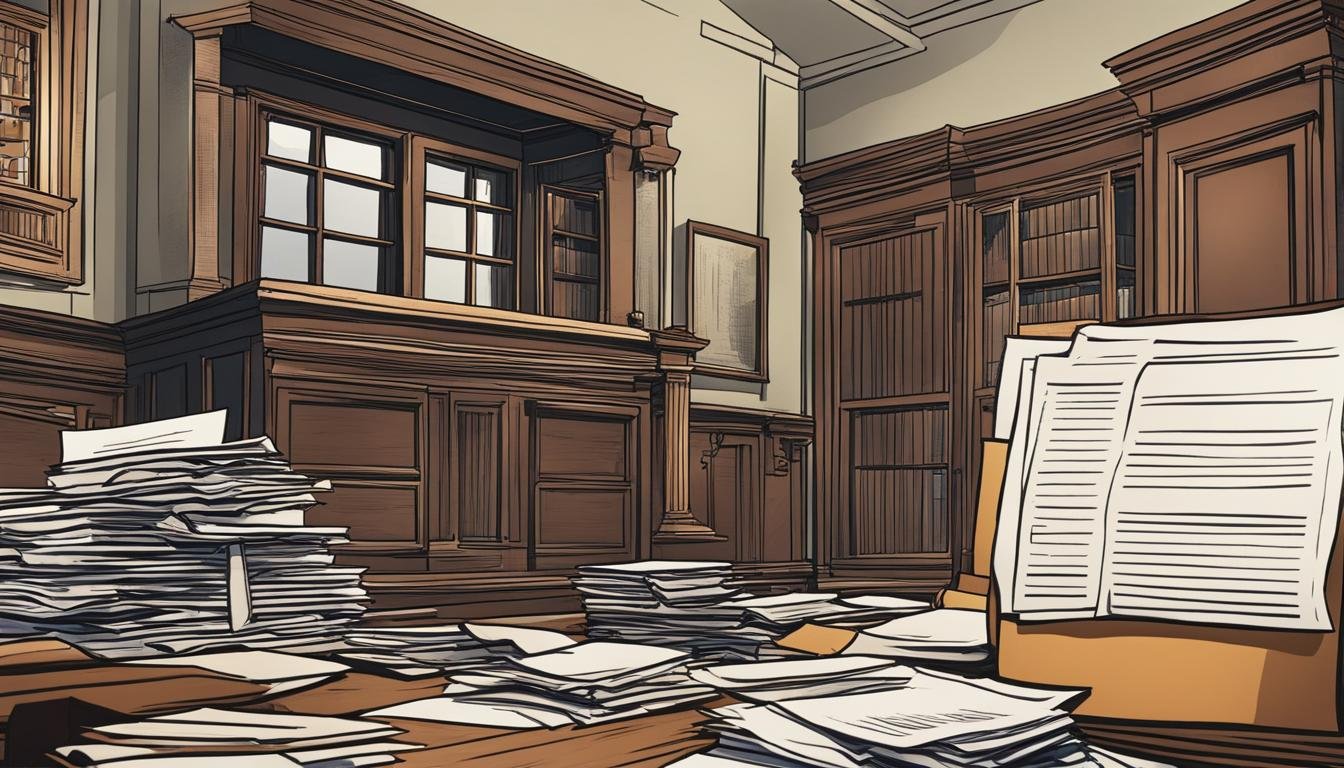Have you ever wondered what happens to a house when someone passes away? In this article, we will explore the probate process for houses and shed light on the fate of a property owned by a deceased individual. Whether you’re facing the probate process or simply curious about the intricacies of transferring property after someone dies, this article will provide you with valuable insights.
Key Takeaways:
- During probate, the fate of a house owned by a deceased individual is determined.
- If the house is not protected by living trust, joint ownership, community property law, or transfer-on-death deed, it will likely go through probate.
- The probate process involves distributing the property to beneficiaries according to the decedent’s wishes or selling the house under probate oversight.
- The length of the probate process can vary depending on the complexity of the estate and any directions left by the decedent.
- Consulting experts, such as a probate attorney or real estate agent, can help navigate the intricacies of the probate process and understand the options for the house.
Transferring Property After Someone Dies
Probate is a court-supervised legal procedure that allows beneficiaries to obtain the financial and physical assets promised to them in a will and clear the debts of an estate. During the probate process, the fate of a house owned by a deceased individual is determined. If the house is not protected by a living trust, joint ownership, community property law, or transfer-on-death deed, it will likely go through probate. The length of the probate process can vary depending on the complexity of the estate and any directions left by the decedent.
A will can make the probate process more straightforward, as it provides instructions for transferring the property to family members. In some cases, the personal representative (executor) of the estate may need to sell the house under probate oversight. The court closely monitors the distribution of assets during probate to prevent fraud and ensure the fair division of property.
It is important to consult with experts, such as a probate attorney or real estate agent, to navigate the intricacies of the probate process and understand the options for the house. They can provide guidance on how to transfer the property, ensure legal compliance, and maximize the value of the house during the probate proceedings. By working with professionals experienced in estate distribution in probate, beneficiaries can navigate the complexities of transferring property and protect their rights during this challenging time.
Transferring Property After Someone Dies
Probate is a court-supervised legal procedure that allows beneficiaries to obtain the financial and physical assets promised to them in a will and clear the debts of an estate. During the probate process, the fate of a house owned by a deceased individual is determined. If the house is not protected by a living trust, joint ownership, community property law, or transfer-on-death deed, it will likely go through probate. The length of the probate process can vary depending on the complexity of the estate and any directions left by the decedent.
A will can make the probate process more straightforward, as it provides instructions for transferring the property to family members. In some cases, the personal representative (executor) of the estate may need to sell the house under probate oversight. The court closely monitors the distribution of assets during probate to prevent fraud and ensure the fair division of property.
It is important to consult with experts, such as a probate attorney or real estate agent, to navigate the intricacies of the probate process and understand the options for the house. They can provide guidance on how to transfer the property, ensure legal compliance, and maximize the value of the house during the probate proceedings. By working with professionals experienced in estate distribution in probate, beneficiaries can navigate the complexities of transferring property and protect their rights during this challenging time.
Selling a House in Probate
In testate probate, when the decedent has left a will, the executor named in the will must carry out the decedent’s final wishes, including transferring any property to beneficiaries. The executor files a petition with the probate court and sets a court date to obtain the legal authority to access, alter, or administer the estate. The judge then conveys the property to the beneficiaries according to the instructions in the will. In some cases, the surviving spouse or children may receive the house as the sole beneficiary. If the surviving children are underage, a probate guardian may be appointed. It is crucial to file the necessary petitions promptly to minimize delays in transferring the property.

When selling a house in probate, it is important to sell the property promptly to avoid capital gains tax and maximize the net profit for the estate. By working with a probate real estate specialist, the executor can navigate the probate court’s requirements, address any legal concerns, and achieve a smooth and efficient sale. Selling a house in probate may have its challenges, but with the right team of professionals, it can be a straightforward process that benefits all parties involved.
Considerations for Selling a House During Probate
When it comes to selling a house during probate, there are several important considerations to keep in mind. The process can vary depending on the county and state where the probate is filed, so it’s crucial to understand the specific rules and regulations that apply. In many cases, court approval may be required for the sale, and it’s important to note that the property is typically sold “as-is.”
The personal representative, who may also be the executor, plays a key role in the probate house selling process. They are responsible for hiring a real estate attorney who can guide them through the legal complexities and ensure that all necessary steps are followed. Listing the property is another crucial step, and it’s important to work with a real estate agent who has experience in probate sales.
If there is a mortgage on the house, it adds another layer of complexity to the sale process. Different types of mortgages, such as reverse mortgages, have specific requirements that must be addressed. It’s essential to work closely with the probate attorney and real estate agent to navigate these complexities and ensure a smooth and successful sale.
FAQ
What happens to a house during probate?
During the probate process, the fate of a house owned by a deceased individual is determined. If the house is not protected by a living trust, joint ownership, community property law, or transfer-on-death deed, it will likely go through probate. The probate process involves distributing the property to beneficiaries according to the decedent’s wishes or selling the house under probate oversight.
How long does the probate process last?
The length of the probate process can vary depending on the complexity of the estate and any directions left by the decedent. It can last anywhere from a few months to several years.
What is probate?
Probate is a court-supervised legal procedure that allows beneficiaries to obtain the financial and physical assets promised to them in a will and clear the debts of an estate.
What happens if there is no will?
If the decedent has not left a will, the property must go through the probate court for distribution. The judge may convey the property to the surviving spouse, children, or next of kin based on the intestate succession laws of the state.
What is the process of selling a house in probate?
When a house needs to be sold during probate, it is essential to work with a real estate agent experienced in probate sales. The executor of the estate partners with a listing agent who handles the transaction, orders a home inspection, and lists the house on the market. The listing agent and probate attorney work together to navigate the probate court’s requirements and ensure a successful sale.
What are the considerations when selling a house during probate?
There are several important considerations when selling a house during probate. The process may vary depending on the county and state where the probate is filed. Court approval may be required for the sale, and the property is typically sold “as-is.” It is crucial to consult with a probate attorney to understand the specific rules and regulations for selling a house in probate and to ensure a smooth process.

